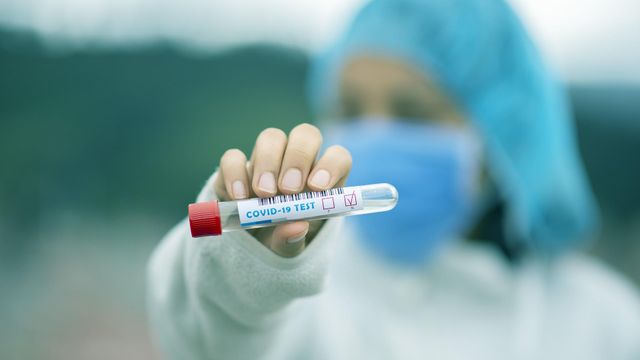NCDHHS, Wake County employ fewer contact tracers now than ever as COVID-19 cases hit all-time high
Fewer contact tracers are working statewide and in Wake County despite the surge in COVID-19 cases. Officials with the state Department of Health and Human Services say it is moving away from calling people who tested positive or are exposed unless they live in congregative settings, work in health care, or are first responders.
Posted — UpdatedInstead of calling exposed people, the state will now send a text with information about isolation or quarantine guidelines. The state will also text out a link where people can anonymously send automated exposure notifications to close contacts.
Last year at this time, there were 2,400 contact tracers working for the state. This January there are only around 1,300, according to NCDHHS. Wake County current has 26 contact tracers on staff and 30 case investigators. Last year, the county had 60 contact tracers.
"Throughout the pandemic, the number of staff has flexed to follow the trends of case increase and decline. The decline in cases in March 2021 through June 2021 resulted in fewer contact tracing staff across the state," according to a statement from NCDHHS. "The number of contact tracers then increased to handle the surge of September 2021, and staff numbers have since been maintained while making use of technological tools to increase efficiency."
But many people who have been contacted in recent days say that NCDHHS and Wake County are not prioritizing contact tracing.
John Scarborough said his daughter was exposed at school in Wake County, but he didn't receive a call from the health department until it was too late.
"It would have been well into her quarantine, almost at the end of it," he said. "At that point, it would have been five days post exposure."
Lynne Hildreth tested positive after a trip to Florida, she said.
"It wasn’t until six days after our positive test results that we were actually contacted by [DHHS] with instructions on when to isolate and when to end our self-imposed quarantine," she said. "It confounds me that the state has been doing this now for nearly two years, you’d think by now they’d have a well-oiled machine."
Health officials said that people who are exposed are expected to be reached within two days of the state receiving a positive test or exposure report. But with delays, that could be extended to seven days.
During December, state health officials said they reached nearly 90% of all people via text, email or a phone call. By comparison, Wake County officials are only able to reach people around 50% of the time.
• Credits
Copyright 2024 by Capitol Broadcasting Company. All rights reserved. This material may not be published, broadcast, rewritten or redistributed.






